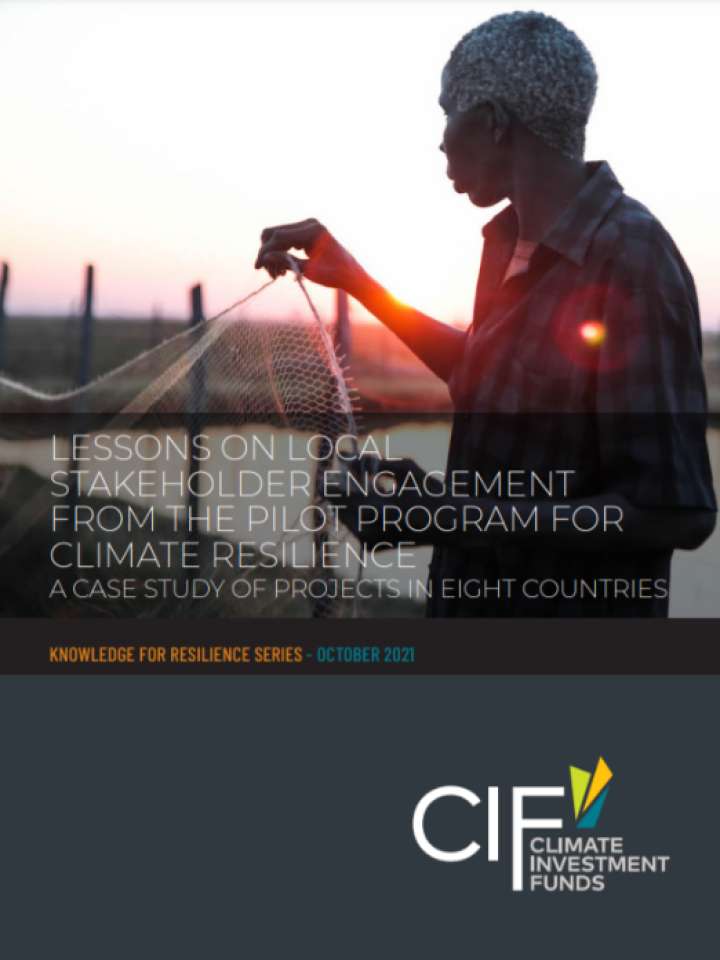Lessons on local stakeholder engagement from the pilot program for climate resilience
This study, led by the Climate Investment Funds (CIF) Stakeholder Engagement team, in collaboration with the Pilot Program for Climate Resilience (PPCR) team, assesses local stakeholder engagement (LSE) in project design and implementation within the PPCR portfolio. While the principles of stakeholder engagement are embedded in CIF’s governance system, their practice varies across countries and programs. This variation stems from the heterogeneous nature of CIF portfolio, the different methods of LSE, along with the disparate priorities and resources accorded to LSE by national governments and multilateral development banks (MDBs) overseeing the CIF investments.
The case study discerned that two key process insights, the importance of early-project stakeholder identification and assigning stakeholder project roles, were critical for successful LSE. Productive and efficient project-level LSE occurred when earlier engagements carried out during CIF’s investment planning process identified stakeholders, and utilized established institutional capacities. Projects that actively involved local stakeholders during implementation (from procurement to co-implementation of small projects) and addressed gaps in local stakeholders’ capacities, helped build partnerships that could be leveraged in future projects.
Explore further
